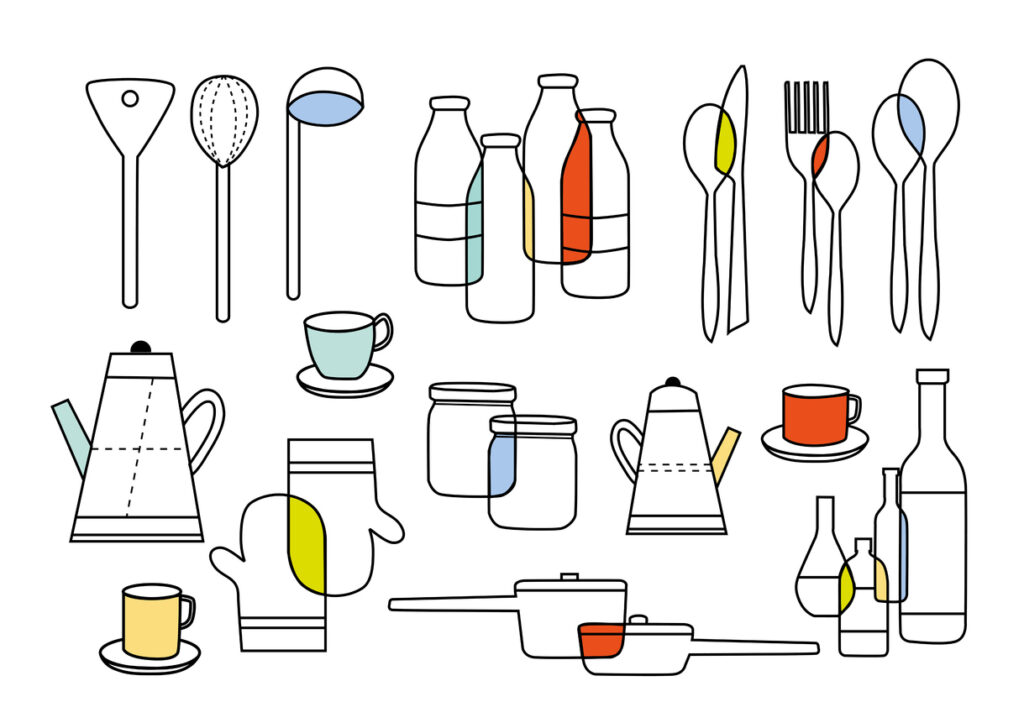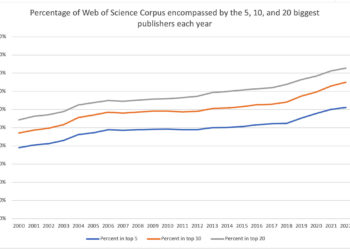Scholarly infrastructure — a collective term for the tools, technologies, and services needed for researchers and others to work efficiently and effectively — is often referred to as the “plumbing” that supports research. Like plumbing, it comes in lots of different shapes and forms, from the most basic essentials (e.g., pipes and water spouts; think standards and persistent identifiers) to the high-end and/or specialist (e.g., fancy water features; think an all bells and whistles research system). Scholarly infrastructure may be open for all to use or restricted to a single community; free or commoditized; general or specialized.
Many Scholarly Kitchen readers will already be familiar with the key players in the scholarly infrastructure space. The tools and services provided both by open organizations (such as Crossref, Dryad, NISO, ORCID, PKP, Zenodo, etc.) and commercial systems and platforms (such as those provided by Atypon, figshare, Highwire, ScholarOne Manuscripts, Silverchair, etc) are integral to the work of many (if not most) publishers globally.

Researchers, of course, have long relied on these tools and services, whether to submit a grant or manuscript, create their institutional profile, make their data available in a repository, and more. They are typically free to use, and paid for — one way or another — by their organizations (funder, institution, publisher, etc). Arguably, as a result, researchers often don’t pay too much attention to the infrastructure (unless it goes wrong, of course!), although ORCID’s requirement for individuals to register and maintain their own records is perhaps helping to address that. In addition, a small subset of researchers decide to develop their own tools and services, usually to fix a problem that they encountered in their own research activities (Altmetric, Dimensions, Overleaf, protocols.io, and Publons for example). In many cases, these small startups then get scooped up by the big players — Clarivate, Digital Science, Elsevier, and, more recently, Wiley.
Librarians, especially those with scholarly communications responsibilities, have long played an important role in helping educate and train researchers on infrastructure tools. Their efforts were (and are!) critical to the success of both of Alice’s former organizations (ORCID and NISO), for example. Funders are also now paying more attention to the critical role that scholarly infrastructure plays in supporting the research they fund. Some, like Wellcome, have been enthusiastic and early adopters of infrastructure such as persistent identifiers (PIDs); for example, they were the first funder to register DOIs for their grants. Others, like the Sloan Foundation, have made much-needed funding available for the infrastructure providers themselves, as well as for organizations like Invest in Open Infrastructure — itself, a relative newcomer that is doing sterling work to improve funding and resourcing for open technologies and systems that support research and scholarship.
It’s great to see more — and broader — community awareness of and interest in scholarly infrastructure, and we’re delighted to announce that, In the coming months, we will be interviewing the leaders of some of these organizations in a new series, “Kitchen Essentials”. Our interviews will focusing primarily on nonprofit and/or independent (for now!) organizations. Building on fellow Chef Robert Harington’s successful Chef de Cuisine series, we’ll be looking to find out more about the tools and services these organizations provide, who uses them, their challenges and opportunities, their thoughts on the future of scholarly infrastructure (including the impact of AI), and more. We’ll also be asking these leaders about their own careers in scholarly infrastructure, how they see infrastructure roles developing to meet future needs, and what advice they’d give those who are new to the community.
We plan to make these interviews as representative as possible, by talking to leaders of less well-known organizations as well as some of the big players. Most major infrastructure organizations, both commercial and open, originated in the Global North — often in response to the needs of the STEM community, whose requirements are baked in and often continue to dominate. While we want to hear from the leaders of those organizations, our Kitchen Essentials series will also feature a range of voices from other types of organization, including some that were developed in and for the Global South.
As Roger noted in his recent post, “What Is the Shared Infrastructure for Scholarly Communication?” (co-authored with his Ithaka colleague, Oya Rieger): “The work of driving efficiency into [scholarly communication] while bringing its multiple strands together seamlessly for the reader (or, increasingly, for a computational user) rests on a foundation of infrastructure, much of it shared across multiple publishers and other providers.” We hope that Kitchen Essentials will provide Scholarly Kitchen readers with a broad overview of that foundation — and some idea of what it might look like in the future — from the perspective of its current leaders. Look out for the first interview, with Adam Hyde of Coko, tomorrow — and let us know what you think about this new series!
Discussion
5 Thoughts on "Introducing Kitchen Essentials — Interviews with the Scholarly Infrastructure Community"
Please include Project COUNTER in your list. They provide the standards for usage metadata that drive individual academic libraries and entire consortia regarding decisions about what to subscribe to and what to cancel. Without the work of COUNTER, customers of scholarly communication output wouldn’t be able to compare value across different content providers/publishers/vendors. With recent changes regarding OA/free to read, they are going to play an even more important role in helping institutions determine what impact OA is having on their access to scholarly communication.
Excellent iniative! Best wishes from Berlin
Please consider including OAPEN, DOAB, and DOAJ. Thanks, Alice & Roger!
Thanks all for the suggestions – we hope this will be a long-running series with lots of opportunities to interview leaders from a wide range of infrastructure organizations.
Love this idea. How about MECA? I know it’s not an org as such, but there was a new recommended practice publication earlier this year.



